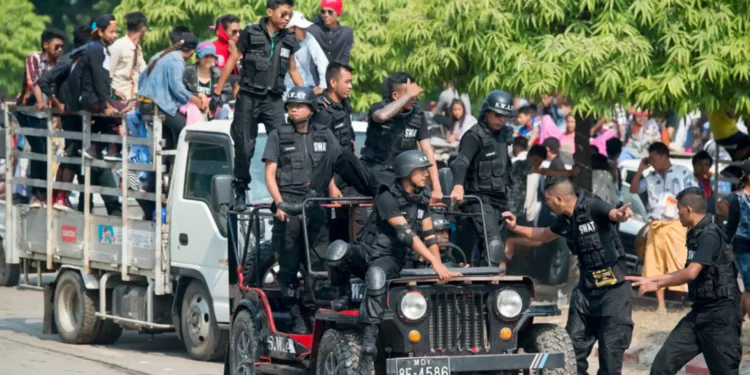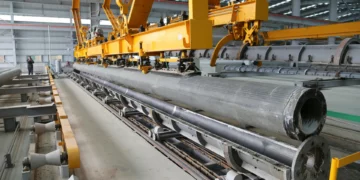Junta’s grip on power has been challenged since it seized control in a coup three years ago, overthrowing the democratically elected government led by Aung San Suu Kyi
In the heart of Southeast Asia, Myanmar finds itself at a significant moment as its military junta contends with a series of setbacks, both on the battlefield and within its ranks. Recent reports indicate that the junta is on the verge of losing control over the major trading town of Myawaddy on the eastern border with Thailand. This latest blow comes amidst a string of defeats, including the loss of crucial territories along the borders with China and India, as well as areas in the western Rakhine state.
The military’s grip on power has been challenged since it seized control in a coup three years ago, overthrowing the democratically elected government led by Aung San Suu Kyi. The coup sparked widespread outrage and led to massive protests across the country. In response, the military unleashed brutal crackdowns, pushing many civilians to take up arms and join people’s defense forces to resist junta rule.
These disparate groups, often lacking in weaponry and resources, have received support from longstanding ethnic armed organizations striving for independence. The diversity of groups opposing the military has stretched the junta’s forces thin, leading to a notable decline in morale and the imposition of mandatory conscription, which has prompted many young people to flee military-controlled areas.
The military’s losses in key border areas signal a significant weakening of its power, though it still maintains control over major urban centers such as Yangon, Mandalay, and Naypyidaw. Richard Horsey, Myanmar adviser to Crisis Group, highlights the deepening rot within the military institution, indicating that while it may not be collapsing outright, the relentless defeats are taking a toll on its ability to project power.
The psychological impact of these defeats is compounded by the absence of a clear protocol for leadership change within the military. Any potential successor to junta chief Min Aung Hlaing faces the daunting task of rallying dejected troops and confronting countless opponents spread across the country.
Amidst these challenges, regional countries are closely monitoring the situation in Myanmar. The Association of Southeast Asian Nations (ASEAN) has led international efforts to resolve the crisis but has faced limited success thus far. Thai Prime Minister Srettha Thavisin’s recent remarks suggest a willingness to engage with Myanmar as the military regime weakens, though prospects for meaningful dialogue remain uncertain.
China, a key player in the region, has complex relations with Myanmar’s military junta. While displeased by the coup and concerned about instability in its neighboring country, China’s primary interests lie in maintaining a divided and weak Myanmar that aligns with its strategic objectives. Despite this, China has mediated ceasefire agreements in conflict-affected areas and has tacitly supported ethnic armed groups in their offensives against the military, reflecting its pragmatic approach to regional dynamics.
As Myanmar teeters on the brink of further upheaval, the human cost of the crisis cannot be overlooked. Civilians continue to bear the brunt of violence and instability, facing displacement, loss of livelihoods, and grave human rights abuses. The protracted conflict has deepened existing social and ethnic divisions, exacerbating the country’s longstanding challenges.
Even after facing several challenges, the people of Myanmar persist in their struggle for democracy and freedom. What’s in store for the future is quite uncertain now for the people of Myanmar, but voices of resistance that echo across the country provide hope for a peaceful future.

















